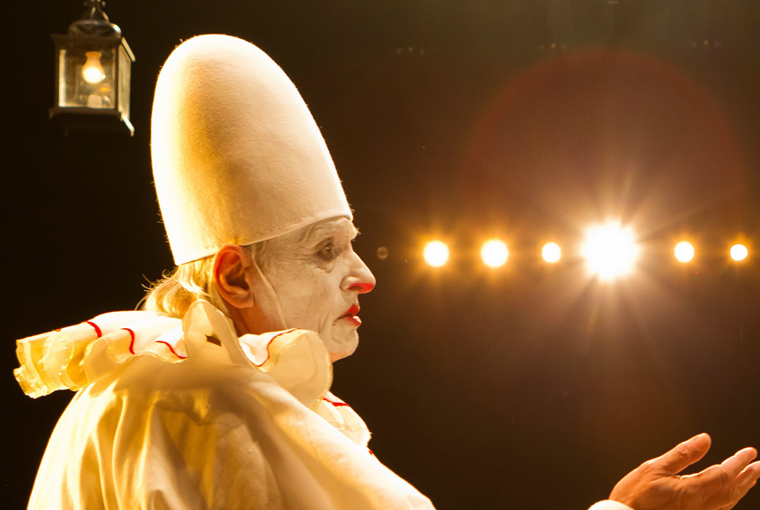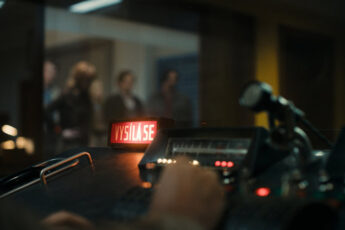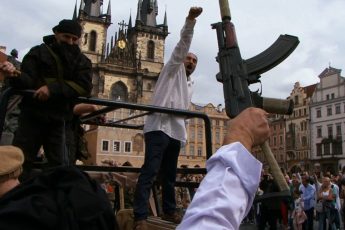He Who Laughs Last...
Viktor Taus’s Clownwise (Klauni, 2013)
Vol. 45 (September 2014) by Colette de Castro
Busters, a clowning trio based in Prague, broke up many years ago when one of the members fled Communism for the golden pastures of France. Now that the trouper is back, having become a successful French mime with his own theater group, the ensemble is complete again. But reuniting with his old pals isn’t easy as they struggle to excuse his departure. When I first heard about this film I hoped it would be a documentary dealing with things like the truth behind comedy during Communism, those who escaped, those who were left behind, their patch-up etc. The fact that it’s a fiction film makes it less exciting, which is not to say the film doesn’t have its merits. For one thing, the music is glorious. Plucked and tweaked notes foreshadow comic moments, while soft melodies smoothly transition the sappy ones.
Indeed, Clownwise by Czech director Viktor Taus is a sweet comedy which revives many old cliches: there is the eager young journalist who is writing his end-of-the-year paper about the trio’s origins, the much-disputed love-hurt between the three men, unexpected clown noses, snicker-worthy moments… Still, what makes this film worth watching is the three main actors’ astounding skills, not only as clowns, but also as actors. Although they are rarely shown together on screen, their actions and attitudes seem to be directed at each other. And so even though there is a woman – a lovely, ethereal acrobat, who climbs trees for no reason and collects flowers – her importance is secondary to the bond between these three funny men whose careers, it seems, was their true happiness. Actors playing scorched lovers could learn a lot from this trio.
Reflections are used from early on in the film – DP Milan Chadima makes this small detail into a metaphor for the duality between life and performance. Their effect is to remind us of the time that has passed between the Busters’ early success and now. We are presented with a rather comic tableau of a group of young clowns who do elaborate exercises in the mirror while brushing their teeth at a roadside gas station. The reflection of the outside can first be seen when Oskar, the one who left for France, is seen joking with his French girlfriend in a café. The adjacent path leading towards the motorway has a simple purpose, namely to remind us that Oskar has returned from far away.
When Oskar invites his granddaughter to eat a piece of cake with him he proclaims, “What we can’t eat, we’ll throw at each other!” Despite the magical undertone of the film, not everything has a magical solution. The problems depicted in this film are very real. Viktor’s wife, who is the much-sough-after ‘Daisy’ of the group, is in a losing battle with Alzheimer’s, Max finds out he has colon cancer, and Oskar is trying to help his confused daughter. Despite these obstacles, it’s only in the metaphorical mirror that the three sees themselves for what they and their beloved Daisy really are – old fools.




Leave a Comment